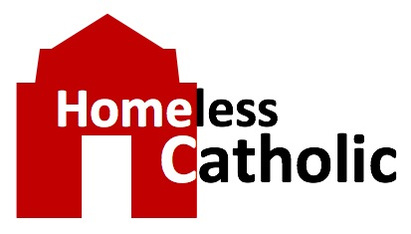Validity of Spiritual Things
When spiritual lists are reviewed in the same mindset as scientific lists the spiritual lists appear to be sorely lacking. There is a deficiency in the methodology by which they are discovered. Spiritual lists are absent the preciseness of scientific proofs. They seem arbitrary rather than orderly. They seem relative rather than exact. They seem without authoritative backing and are deficient in the validity demonstrated by repetition.
Reflection - Lists
http://usccb.org/bible/readings/102616.cfm
On occasion my mental world lapses into chaos and confusion; and I find it difficult to get re-oriented. I feel like a compass whose needle has been given a spin by the flick of a finger and, consequently, I can't seem to settle on the exact location of north. I feel like I've been tumbled about by a large wave just offshore in the ocean and I can't seem to fathom which way is up. The sensation generally occurs during periods of extreme and varied activity where a multiplicity of events scramble to get ahead of one another in their rush to reach completion. Sometimes, on the other hand, the sensation of dis-orientation follows upon the abrupt cessation of such demands, when all of a sudden nothing is claiming my attention.
I have a standard solution to these feelings of disorder. I fall back on it from time to time. I doubt my methodology is out of the ordinary; but it is simple. It's easy. It's convenient.
Make a list!
That's right, just make a list!
Write down the things that need to be accomplished, or the things which you now have time for --- write these down along with the time frame within which they must be done and scratch them off as each is completed.
Some people approach their spiritual lives in this same manner. Since the Ten Commandments lists such egregious actions, that list is relatively easy to deal with most of the time. From there, a secondary list is made, like the one the Pharisees had.
- Fast on the required days for fasting.
- Don't do any work on the Sabbath.
- Avoid any contact that would make you unclean.
- Observe all ritual washings.
- Keep your distance when eating and drinking with questionably holy men
- Etc.
We've updated the list in some ways since Jesus' time.
- Fasting is down to a bare minimum.
- Ritual washings are simply not practiced.
- It's no longer feasible to avoid working on the Sabbath.
- The unclean are taken care of in institutions.
Actually, the possible options to include on our lists are somewhat limited since the Second Vatican Council; but we still work hard to create these spiritual checklists for ourselves even if the Church doesn't create them for us. Mostly we refer to the options promoted before Vatican II and adopt those devotions and practices as our own personal requirements for salvation. Salvation is easier when you have a checklist to follow; and even easier still when you determine for yourself what's on the list. But let me come back to that in a moment. I need to take a brief history tour.
For more than four hundred years Western Civilization has been ploddingly discarding the trappings of a social/philosophical/spiritual structure known as Christendom. The term 'Christendom' itself is used in multiple ways; but, in the centuries when it actually existed, it was the guiding vision of a Christian theocracy, a government upholding Christian values, with institutions that were immersed in Christian doctrine. The system flourished in feudal times and was just flexible enough to survive the first couple centuries after the Protestant Reformation. Today, only the remnants remain.
Although there were stress points where politics and religion interfaced, the core idea saw a society composed of three groups. There were the clergy who knew what was proper in the divine order of things; the nobility with their soldiers who had the duty of enforcing the directives of the clergy as well as maintaining the social/political order; and there was the balance of the population whose duty it was to obey the directives of the other two orders. In such a milieu, lists, even spiritual lists, worked well and the church was more than happy to enumerate what should be on the lists. Consequently, directives flowed from above to the vast majority of the population below. You might say it was a trickle-down spirituality.
The notion of Christendom began to fade about the time of the Renaissance for a variety of reasons. But it wasn't until the early seventeenth century that it's philosophical underpinning was delivered a death blow. Although the knockout was rendered in 1637, the collapse of the mentality behind Christendom proceeded far more slowly; and the patient hasn't expired even today. The onset of the death rattle required the firm entrenchment of the new philosophy.
In the decades leading up to that divisive watershed date of 1637, scientific investigation had been proceeding apace for more than a century and with ever increasing rapidity; but the pre-eminent factor causing the shift of thought came with a seventy-eight page philosophical treatise written by Rene Descartes. It was titled Discourse on the Method of Rightly Conducting the Reason and Seeking Truth in the Sciences. The impact would be enormous.
Descartes' method used reason as its tool, so it's approach to the physical world downgraded theological readings, including all of Scripture. At the time, many thought his "method" dangerous. To pursue it as an actual basis of thought, it was argued, would lead to atheism, to a breakdown of authority, to a world riven by doubts and confusion, without any arbiter, any rules. Sounds contemporary, doesn't it. Just before Joseph Cardinal Ratzinger became Pope Benedict XVI he said of Western Civilization: "We are building a dictatorship of relativism that does not recognize anything as definitive and whose ultimate goal consists solely of one's own ego and desires." Four hundred years after the Discourse on Method was first published, the Pope's observation echoes the same objections to Descartes' proposal as was made by his contemporaries. Those of us living in present times are experiencing the full impact of those seventy-eight pages. Indeed, we may have finally reached the edge of the precipice.
Now I'm sure you're wondering what all this has to do with today's readings; so, let's go back to "lists" for a moment and then I'll put the two together.
In a very real sense, lists (I use the term here in the broad sense) are the objective of science. They demonstrate the order that exists within apparent chaos and direct the understanding toward questions not otherwise obvious. For example: Seeing the order of the initial periodic table of elements led to the discovery of new elements. Recognizing the laws which govern the motion of the planets around the sun and the interaction between the two led to the discovery of additional planets even before they could be observed.
The Method of Rightly Conducting the Reason and Seeking Truth in the Sciences promotes the creation of lists and, over the centuries we have catalogued the solar system, the galaxy and the stars. We have enumerated kingdom, phylum, class, order, family, genus and species, and what belongs in each. We have observed molecules, atoms, particles, and sub particles. We list laws of motion and laws of thermodynamics. We create charts of elements and even create elements so as to extend the chart. Science loves lists. There's nothing wrong with lists.
Through Moses, God gave his people a list. It was a brief list with just ten items. The list grew longer as the Jewish spiritual leaders explored the nuances of each item insofar as that item had a bearing on everyday life. For example, they offered a more detailed list to explain what it meant to "Keep holy the Sabbath." Jesus gave us a list which we call the beatitudes. In this morning's reading, Paul gave the Ephesians a list of what is appropriate for different people in different circumstances. Elsewhere in his letters Paul offers lists on the gifts of the Holy Spirit, on what is inappropriate behavior for the new Christian, on what fruits can be expected when one is living in the Spirit of Christ. There's nothing wrong with lists.
When spiritual lists are reviewed in the same mindset as scientific lists the spiritual lists appear to be sorely lacking. There is a deficiency in the methodology by which they are discovered. Spiritual lists are absent the preciseness of scientific proofs. They seem arbitrary rather than orderly. They seem relative rather than exact. They seem without authoritative backing and are deficient in the validity demonstrated by repetition.
The perception of these apparent Inadequacies is responsible for the supposed indeterminate and relative value of the various religions and the modern practice of self-determining right and wrong. After all, if the lists we make of doctrines, rituals and morals cannot be firmly established through rigorous proofs, then the individual is free to pick and choose as he pleases from the smorgasbord that is offered . . . or not. But, in reality, that is not the case. Whereas those scientific lists which follow from a growth in the understanding of the physical world might, in a sense, be viewed as the ultimate product of science, spiritual lists, whether in the areas of doctrine or morality, fail miserably as an end product.
The research of the scientist allows him to make new and better lists, to establish new and more exact categories, to design more precise mathematical formulas for the description of the physical world. In other words, the creation of better lists is an ultimate goal of science.
Spiritual categories and lists have no such purpose; they are not an ultimate goal. A spirituality based on lists --- on what I have or need to have accomplished in order to reach salvation --- is not viable whether we make up the list for ourselves or, alternately, allow the church to make it up for us.
Spiritual lists exists for the purpose of helping us reach our goal, which is God himself. For this reason, as valuable as they may be, spiritual lists will always be found lacking when measured by the limited norms of science.
This morning's gospel points us in the right direction. In the end, Jesus says, people will come and knock on the Lord's door. 'Lord, open the door for us.’ they will say. But He will say to them in reply, ‘I do not know where you are from.’ They will respond, 'But we have our lists. We ate with you. We drank with you. You taught in our streets. We completed the list.
Then he will say to you,
‘I do not know you.'
Spiritual lists may have been more useful in a different age. Today, if approached from the mindset of science, they can be deceitful. The Lord will never ask me: 'Did you check off everything on your spiritual list?' He will say: 'Do you know me and have you allowed me to know you?'

